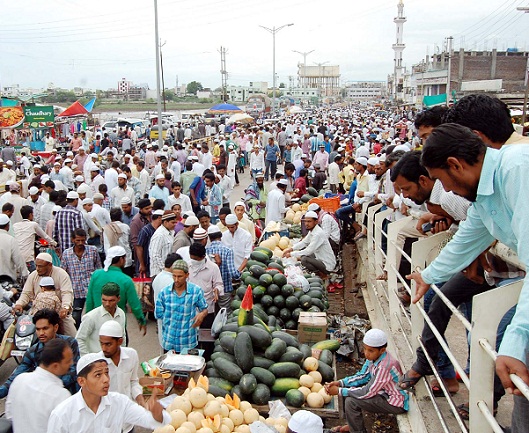Last Updated on May 22, 2019 2:23 am by INDIAN AWAAZ
Precautions and consultation with a physician are advised

Photo by Munawar Khan
HEALTH DESK
India has the third-largest Muslim population and a majority of them keep fast during holy month of Ramazan. This number will also constitute people living with diabetes and thus, the need of the hour is to fast while exercising caution. Fasting can bring about metabolic changes and they must adjust their diet plan during Ramadan.
There is a 12- to 15-hour gap in between meals which can become a problem for those with diabetes. It is therefore advised that they consume regular and timely meals. People with Type 1 diabetes are at a higher risk compared to those with type 2 when fasting during the holy month.
Speaking about this, Padma Shri Awardee, Dr KK Aggarwal, President, HCFI, said, “Ramadan this year will continue till the month of June and the fasting period will be longer due to daylight hours. It is imperative that people living with diabetes consult their doctor and monitor blood glucose levels regularly. People with type 1 diabetes and a history of recurrent hypoglycemia have a higher risk during fasting. In those with Type 2 diabetes, there is a likelihood of hypo- and hyperglycemia. A patient’s decision to fast should be made after ample discussion with his or her physician concerning the risks involved. Patients who insist on fasting should undergo pre-Ramadan assessment and receive appropriate education and instructions related to physical activity, meal planning, glucose monitoring, and dosage and timing of medications. The management plan must be highly individualized. Close follow-up is essential to reduce the risk for development of complications.
Some symptoms to be noted include fluctuating blood sugar levels, seizures and unconsciousness; blurry vision, headache, sweating, increased fatigue, and thirst. In case any of these persist, the patient should do away with fasting completely.
Adding further, Dr Aggarwal, who is also the Group Editor-in-Chief of IJCP, said, “Thirty days of Ramadan in Islam; nine days of Navratra in Hinduism and forty days of Easter in Christianity are spiritual practices observed by respective religions. These are days of mind, body and soul detoxification observed as per religion defined rituals. Broadly, they involve restraining the ten senses during the fast period. One restrains from negative thoughts cum actions and indulges in positive thoughts cum actions.
In Ramadan, the one-month continuous fast detoxifies the mind, body and soul and reenergizes the human being. Taking precautions can help people exercise better control over their health conditions even during fasting.
Some tips from HCFI
• Monitor blood sugar level frequently.
• Do not overeat. Pay attention to body signals and understand hunger.
• Make sure to break the fast with sugar-free and decaffeinated drinks to avoid dehydration
• Consume sweets in a limited amount.
• Make sure to include lot of fruits, vegetables, pulses, and curd in your diet
• Allow a time interval of at least 2 hours between the meal and bedtime. It is a good idea to avoid complex carbohydrates right before bedtime.
• Avoid deep fried foods. Also, make sure to time the consumption of starch-containing foods such as rice and rotis.
